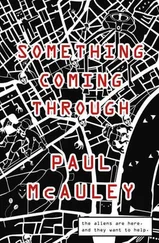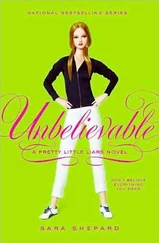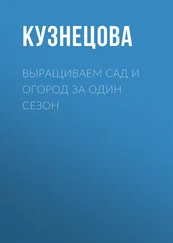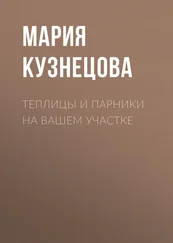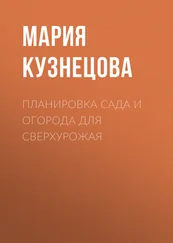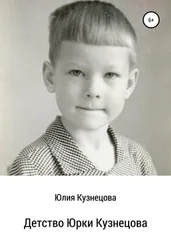Мария Кузнецова - Something Unbelievable
Здесь есть возможность читать онлайн «Мария Кузнецова - Something Unbelievable» весь текст электронной книги совершенно бесплатно (целиком полную версию без сокращений). В некоторых случаях можно слушать аудио, скачать через торрент в формате fb2 и присутствует краткое содержание. Город: New York, Год выпуска: 2021, ISBN: 2021, Издательство: Random House, Жанр: Историческая проза, на английском языке. Описание произведения, (предисловие) а так же отзывы посетителей доступны на портале библиотеки ЛибКат.
- Название:Something Unbelievable
- Автор:
- Издательство:Random House
- Жанр:
- Год:2021
- Город:New York
- ISBN:978-0-52551-191-5
- Рейтинг книги:3 / 5. Голосов: 1
-
Избранное:Добавить в избранное
- Отзывы:
-
Ваша оценка:
- 60
- 1
- 2
- 3
- 4
- 5
Something Unbelievable: краткое содержание, описание и аннотация
Предлагаем к чтению аннотацию, описание, краткое содержание или предисловие (зависит от того, что написал сам автор книги «Something Unbelievable»). Если вы не нашли необходимую информацию о книге — напишите в комментариях, мы постараемся отыскать её.
Something Unbelievable — читать онлайн бесплатно полную книгу (весь текст) целиком
Ниже представлен текст книги, разбитый по страницам. Система сохранения места последней прочитанной страницы, позволяет с удобством читать онлайн бесплатно книгу «Something Unbelievable», без необходимости каждый раз заново искать на чём Вы остановились. Поставьте закладку, и сможете в любой момент перейти на страницу, на которой закончили чтение.
Интервал:
Закладка:
Aunt Tamara tugged on Uncle Ivan’s arm as we followed him down a paved road lined with poplars. “Is there a maximum age for the women’s work?” she asked.
Ivan laughed and looked her over and said, “Don’t worry, you’ll do.” Then he added, “Unless you are of unsound mind.”
“I can certainly prove that if I try hard enough,” she grumbled, but her husband silenced her with his gaze.
Baba, on the other hand, could easily be proven mentally infirm, and who knew what she would do all day. She followed us in a daze with a faint smile on her lips, her now-gray boa trailing her, thinking she was some kind of debutante, as if all the men in town were staring at her. Perhaps some were, but not for the reasons a woman would want to be stared at. Faithful Polya kept pace behind our grandmother, lifting her boa and draping it over her shoulders whenever it hit the ground. Maybe she hoped our grandmother would draw some eyes toward her in turn. There were men everywhere, but for once none of them were looking at Polina. I pictured Dimitrev senior, twirling his mustache while gazing at my sister—there was no one who had the luxury to do that here, and though her red mane was still somewhat beguiling, she looked a bit too haggard for wandering eyes.
I turned from all of them and gazed at the factory, which looked majestic and imposing from farther away. Papa caught me looking and winked. He put a hand on my shoulder and said, “I’d rather be in school.”
“We can trade, then,” I said, though of course I did not mean it. I thought school would be the highlight of my time there, though I was curious about the factory. Though I did not think making tanks and other instruments of war would suit my father, who was by nature a peaceful man.
“If school gets dull enough for you, I can take you for a tour. How does that sound?” Papa said.
I told him it sounded nice, but did not expect much. It was nearly impossible to get Papa alone, even during peacetime.
I was even more filthy by the time we reached the first of the apartments, my sweat mixing with the remains of the mud stuck to my body. The apartments weren’t nearly as tall as the ones in Kiev; just three or four stories at most, with more poplars and orderly fences and wooden benches in their courtyards. In the center of the apartments was a row of functional buildings, which included a post office, a small, squat school building, the grocery where the mothers would get our family’s daily bread with their coupons, which apparently was run by one famed Madame Renata, who lived in our building. “Get on her good side and stay on it,” was all Uncle Ivan said about her. Other Ivans dropped other passengers off at their new homes, and it seemed ours was the farthest away. My grandmother was not pleased by the trek.
“I may faint at any moment,” she warned us.
“Be our guest,” said Aunt Tamara, rolling her eyes. My grandmother ignored her. The women had much in common, so naturally they had already become enemies.
I walked beside Misha, distancing myself from the complainers.
“We’ll miss you in school,” I told him.
“I’ll be more useful at the factory, I’m certain,” he said, but he gave me a little smile. “Though I will miss you when I’m working. We will all miss you, I mean,” he said, clearing his throat and looking serious again, though I felt my face flushing, getting even warmer under the bright sun. Then he gazed ahead like a soldier like the parents were doing.
Bogdan was flopping his head around, looking at this and that like an overheated puppy, while my sister and Baba dawdled behind us with linked arms. We had reached the edge of the earth, the final apartment building, which had a few benches and a swing set out front and abutted a forest of pines, in front of which flowed a small but mighty stream. The long trek was worth it. I would take trees over more neighbors any day. I was drenched in sweat by then. The sun was high in the sky and there was no breeze to offer relief.
Our new home was on the second floor of a three-story building. Our families and the Garanins followed Ivan up the stairs, and the Garanins were the first to be dropped off in a one-room home next door to the apartment of Madame Renata. Aunt Yulia looked like a sleepwalker, the loose strands from her ponytail cascading down her shoulders like elegant seaweed. Though Bogdan walked near her, no one spoke to her, and her husband was equally vacant. Which was perhaps for the best in one regard, which was that, when they encountered the formidable Madame Renata, they hardly seemed to take her in. She was a nasty silver-haired woman with deeply arched brows who peeked her head out her door and gave us a once-over.
“I would shower now while the water is running,” she offered, and then she returned to her lair.
If we hadn’t been so exhausted, I might have exchanged a look with Papa and laughed at this woman’s expense.
Instead, we parted with the diminished Garanins and followed Ivan down the hall, where he showed us our living quarters: two fairly large rooms with stoves, a balcony, and a shared kitchen for all of us. The apartments had minimal furniture, a few beds, a heap of blankets in the corner, a few dull lamps and landscapes, pale-orange wallpaper, and in one of the rooms, an empty bookshelf that broke my heart. The Orlovs were given the larger of the two rooms, though either room was substantially bigger than the one I was used to. In my opinion, my parents won out because their balcony looked straight out onto the pines.
This was a downgrade for the Orlovs. Once, when my family visited their massive apartment in Kiev, Polya and I pretended to search for the restroom and wandered down their endless hallway, counting six different bedrooms, such a tremendous number of rooms that I could not even imagine what could be done in all of them. Polina had even jumped on the Orlovs’ bed and cried, “A whole family could sleep on this bed! An entire family!” We were much younger then.
Then, next to the bathroom, Ivan showed us another room that used to be a closet but which had a bunk bed in it, which we were welcome to use, if we needed it. Improbably, it had a tiny window. This was the room where Polina, Baba Tonya, and I would stay, it was decided. The brothers would sleep in an alcove in their family’s room.
“We thank you. It is more than suitable,” Uncle Konstantin said.
“It’s the best we’ve got,” Ivan said, bowing as he left us standing back in the main room. A mouse scurried past, and Polya and Baba Tonya shrieked while Aunt Tamara jumped.
“More roommates,” Bogdan said, trying to ease the tension, but nobody laughed.
“This is where I will meet my end—I just know it,” Aunt Tamara said.
“And I mine,” said Baba, who was not to be topped in her misery.
“Enough with the theatrics,” Uncle Konstantin told his wife. “This is home now. This is where we will serve our country, and there’s no use in fighting it.” He slammed a fist against the wooden coffee table by the stove and seemed almost human for a moment, capable of frustration. Even Misha jumped a little, at this. I had never heard Uncle Konstantin raise his voice.
His words lingered, but no one responded. We were all ready to collapse, too tired to think of Nazis or our strange new living arrangement. Mama paced around the main apartment, running her hands along the walls, kicking at the scant furniture with a strained, ferocious smile. “It is quite a nice apartment,” she said with desperate near-cheer. “Much larger than I expected. It just needs a bit of attention, that’s all.”
Mama began settling in, which meant placing the clothes she and Papa had packed in drawers, putting the finery she would sell under their bed, and taking out a single framed photograph she brought of herself and Papa and placing it on the bookshelf near the stove. In the photograph, she and Papa stand in the kitchen of their first apartment, holding a pot of dumplings, looking impossibly young and wildly proud of what they had made. This must have been before I was born, because I had never seen such unabashed joy in my weary parents’ eyes.
Читать дальшеИнтервал:
Закладка:
Похожие книги на «Something Unbelievable»
Представляем Вашему вниманию похожие книги на «Something Unbelievable» списком для выбора. Мы отобрали схожую по названию и смыслу литературу в надежде предоставить читателям больше вариантов отыскать новые, интересные, ещё непрочитанные произведения.
Обсуждение, отзывы о книге «Something Unbelievable» и просто собственные мнения читателей. Оставьте ваши комментарии, напишите, что Вы думаете о произведении, его смысле или главных героях. Укажите что конкретно понравилось, а что нет, и почему Вы так считаете.

